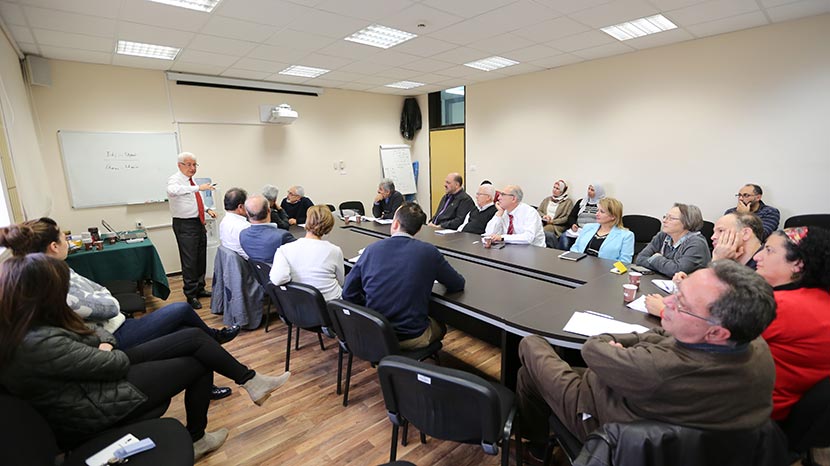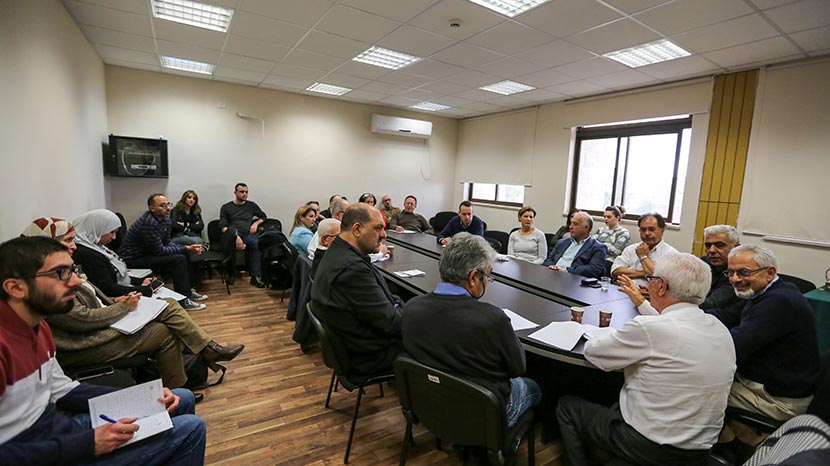Lecture Questions Neoclassical Economic Policies
McMaster University economics professor Atef Kubursi presented on December 1, 2016 a lecture on the consequences of neoclassical economic policies on the market and the capital financial systems.
The lecture was organized by the PhD program of Social Sciences, and the Economics Department at Birzeit University, in cooperation with the Palestine Economy Policy Research Institute - MAS.
Kubursi questioned “naïve” neoclassical economic models and their effect on the markets, especially in developed countries, which are characterized by non-intervention, simplicity, uniformity, transparency, non-discretion, decontrol of prices and privatization.
Kubursi argued that the recent rush towards globalization has reverted much of the economics profession to a new fundamentalism about the virtues of markets and the shrinking of government. Kubursi pointed out that today there is a stunning imbalance in ideology and conviction and the institutions that favor markets over the state and western culture over other cultures.
According to Kubursi, developing societies cannot just apply Western standards and values, which are often imposed through cultural imperialism, and that the development of nations should be unique to each culture. He urged developing countries to reject the universality claimed by Western beliefs and practices and to ultimately liberate economics from the stranglehold of Anglo-Saxon exclusivists and cultural imperialists, and build an economy that is connected to each country’s historical bearings.










